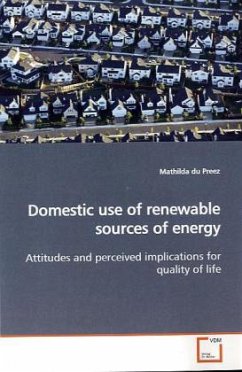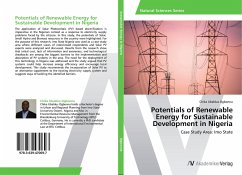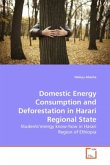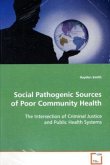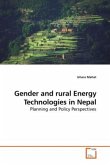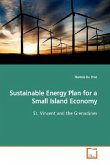Attitudes and perceived implications for quality of
life of environmentalists are explored, with a
specific focus on the domestic use of renewable
energy sources. A systems theoretical approach was
followed in conjunction with a qualitative
methodology in order to place the attitudes and
perceived implications for quality of life in context
with the systems in which they exist. The in-depth
data that was collected by means of face-to-face
interviews was analysed in a qualitative and systems
theoretical framework. The participants' learned
attitude toward the environment, the role of
responsibility and its influence on perceived quality
of life, risk perception as inhibitor of action,
renewable energy and the perception of self,
renewable energy as available medium and the
possibility of change of attitude toward renewable
energy sources are discussed in depth.
life of environmentalists are explored, with a
specific focus on the domestic use of renewable
energy sources. A systems theoretical approach was
followed in conjunction with a qualitative
methodology in order to place the attitudes and
perceived implications for quality of life in context
with the systems in which they exist. The in-depth
data that was collected by means of face-to-face
interviews was analysed in a qualitative and systems
theoretical framework. The participants' learned
attitude toward the environment, the role of
responsibility and its influence on perceived quality
of life, risk perception as inhibitor of action,
renewable energy and the perception of self,
renewable energy as available medium and the
possibility of change of attitude toward renewable
energy sources are discussed in depth.

